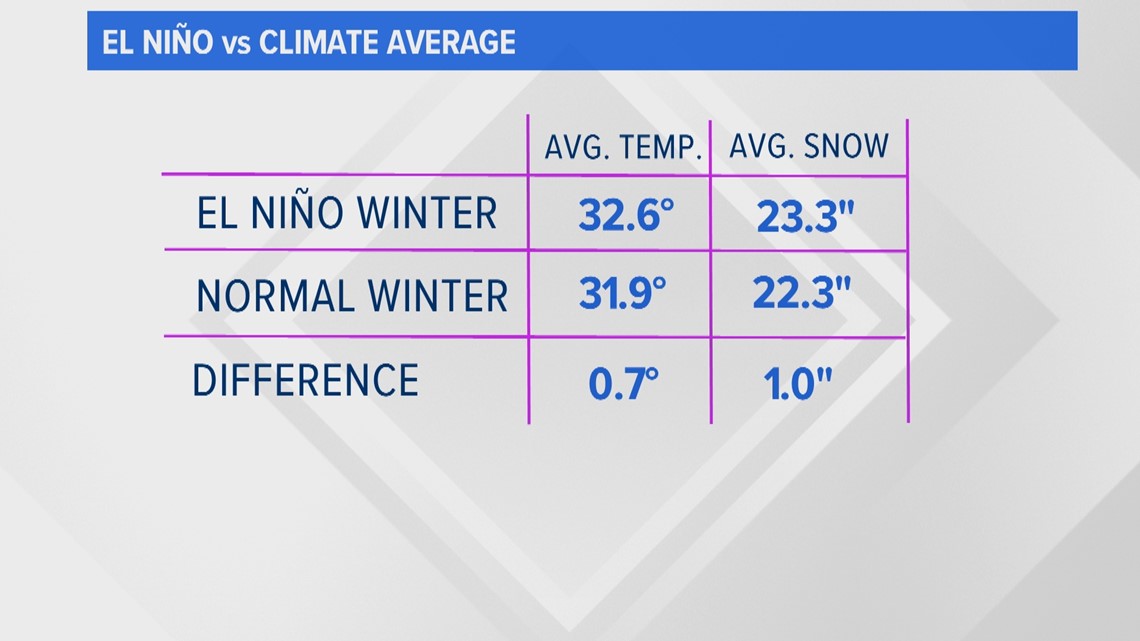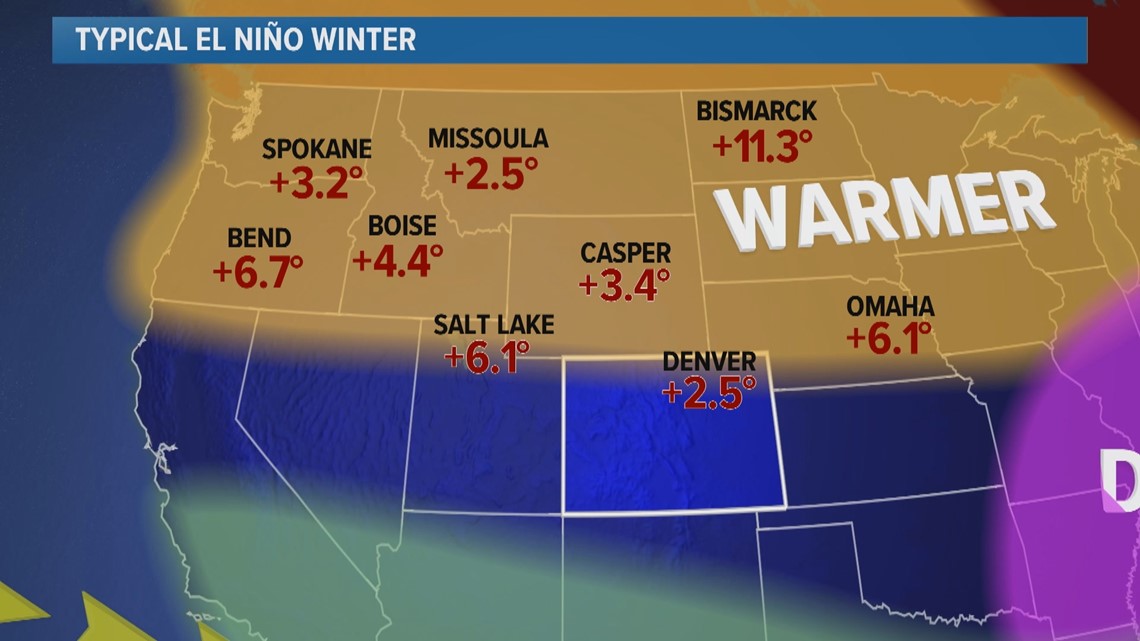DENVER — A warm winter day across the state of Colorado marked the end of meteorological winter which runs from Dec. 1 through the end of February.
A 64-degree day in Denver, helped this winter finish with an average temperature of 34.4 degrees – that tied the warmest winter since the 1999-2000 season.
The average winter temperature in Denver is 31.9 degrees.
That average is computed by adding all the high and low temperatures from December to the end of February at Denver International Airport and dividing by the number of days in the winter, which was 91 this season counting leap day.
The winter outlook issued in October showed that Denver and the rest of Colorado would likely finish near the average winter temperature, but the emergence of a super El Niño was pointing towards a slightly colder than normal winter in Denver.
A super El Niño occurs when the sea-surface temperatures in the eastern part of the equatorial Pacific Ocean peak at more than two degrees Celsius during the winter months. There have only been five other super El Niño's on record, and even though they favor warmer than average temperatures in the northwest U.S., the winter average in Denver during those super El Niño's is 31.5 degrees compared to Denver's climatological average of 31.9 degrees.
In addition, some of Denver's coldest winters of all time have come during El Niño conditions.
But instead, it ended up being the warmest super El Niño. And out of the last four regular El Niños, this winter was the third out of the last four to finish warmer than average. This was the 22nd El Niño winter since 1953 when the record started.
El Niño is also known for bringing slightly snowier than average weather to Denver. El Niño winters have averaged 23.3 inches in Denver, while the super El Niño average is 23.3 inches. But this winter was one of the least snowy El Niños on record with just 18.7 inches in Denver.
That's the 8th least snowy out of the 22 total El Niños, and the second least snowy super El Niño.
This winter helped bolster the argument that El Niño weather patterns do not have a consistent enough track record to help make winter weather predictions in Denver.
And the most tell-tale statistic might be in comparing El Nino's winters to the climatological average. The average winter temperature and the average snowfall in Denver during El Niños is not much different than the general average of all winters combined.


Showing again, that El Niños don't hedge winter predictions significantly for Denver.
El Niños are more consistent and useful for forecasting in larger regions. For instance, a typical El Niño winter favors a large area in the north and northwest U.S. for warm and dry winter conditions. And that area did prove true once again this season with several major cities recording warmer than average winters.


The influence of an El Niño does have some effect on spring which starts Mar. 1 in weather recordkeeping. However, the impacts for Denver are no more consistent than they are in the winter months.
SUGGESTED VIDEOS: Colorado Climate

